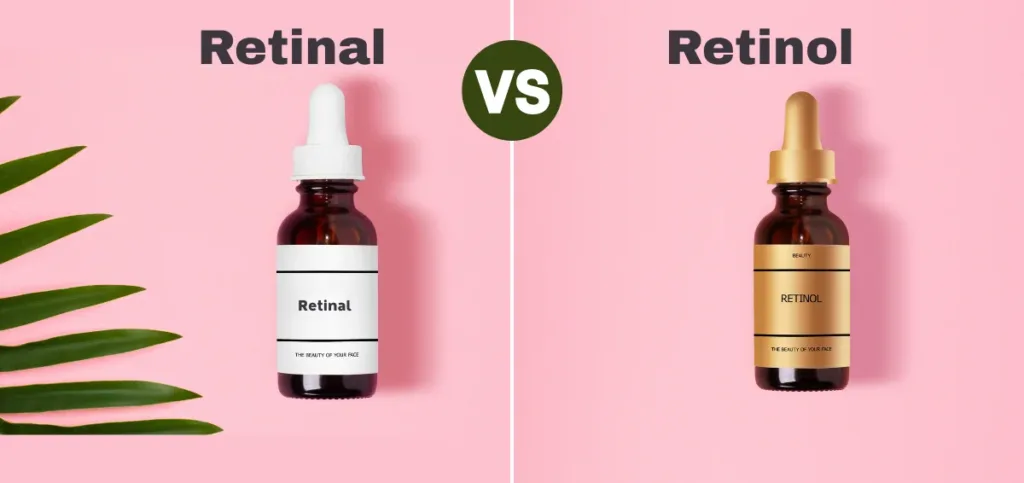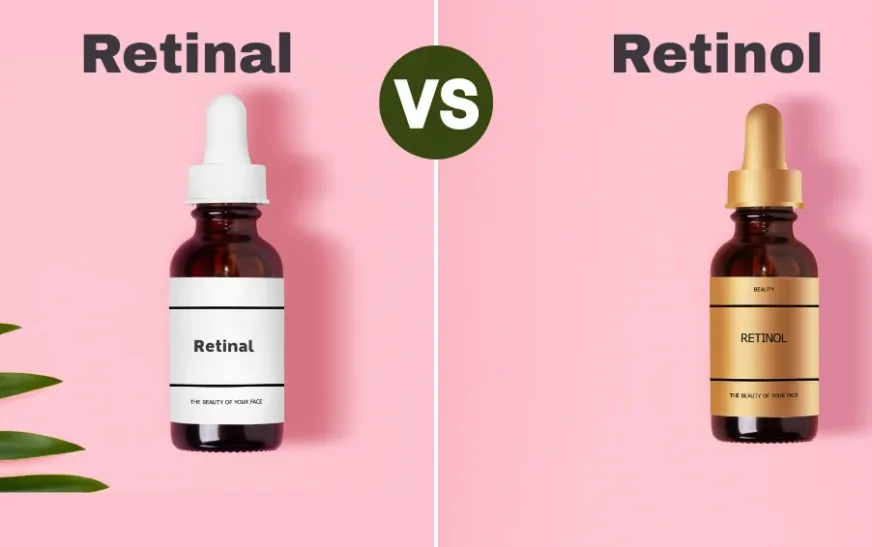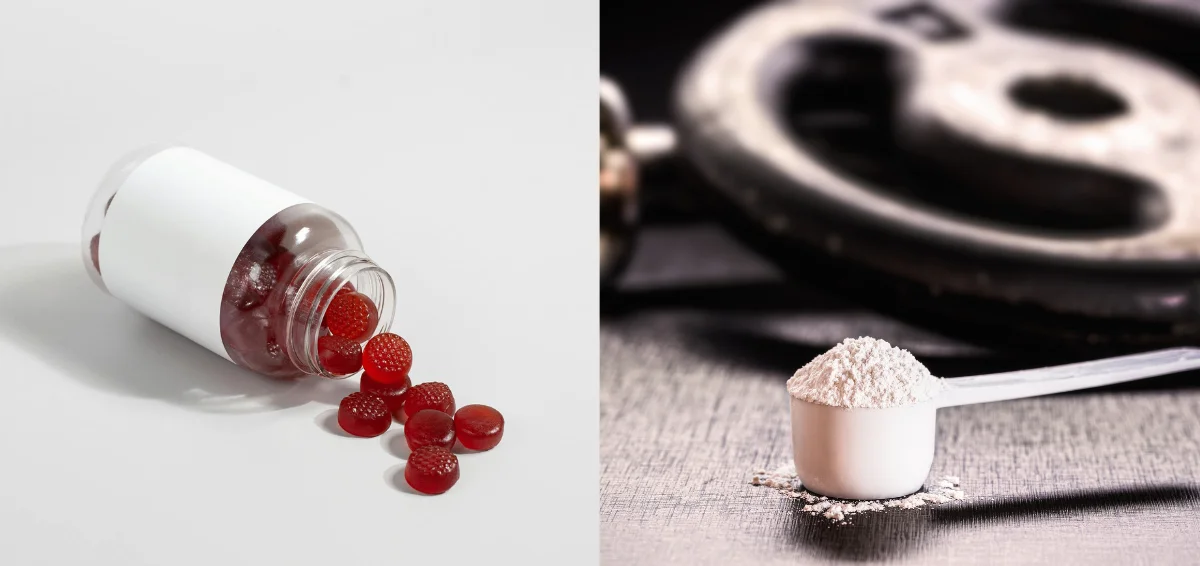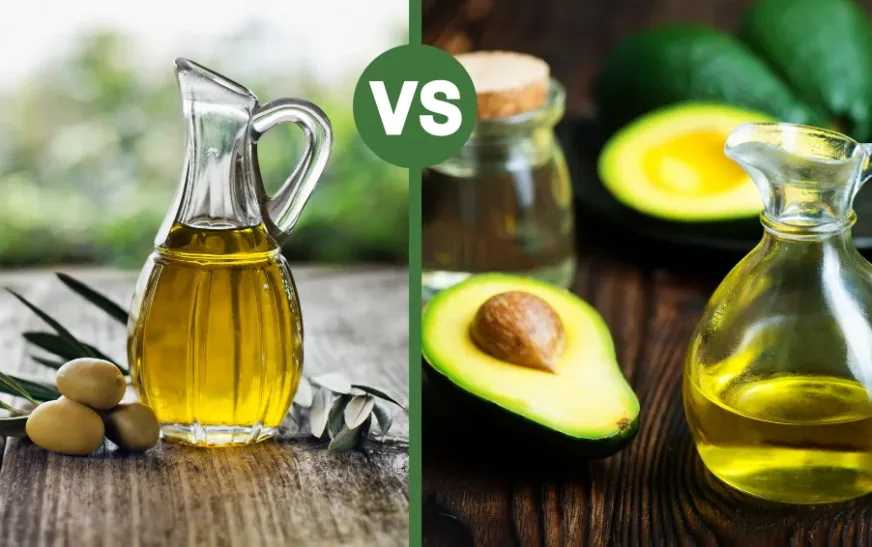
Derivatives of vitamin A are a primary part of anti-aging treatments. The two most popular ones are retinal and retinol. Despite sharing the same family and benefits, there are some key differences between them. If you are serious about including them in your anti-aging routine, you must understand what sets them apart. This retinal vs retinol comparison will help you understand these ingredients so you can choose the right one.
Retinal vs Retinol – Key Differences to Know Before Buying
Retinal or retinaldehyde is a form of vitamin A that is very close to becoming retinoic acid. Retinoic acid is essential for cell growth and combating signs of aging. This means that retinal acts faster on the skin than retinol, which is slightly behind retinal in turning into retinoic acid. It doesn’t mean that retinol is not good for anti-aging. It just means that it is a little less potent than retinal.
Here are the major differences between them.
| Feature | Retinol | Retinal |
| Potency level | Less | More |
| Conversion Steps | 2 steps to becoming retinoic acid | 1 step to becoming retinoic acid |
| Speed of Results on skin | Gradual improvement | 11x faster results |
| Irritation | Generally low | Slightly higher, but still low |
| Antibacterial Effect | None | Direct antibacterial properties |
| Availability | Widely available as OTC products | Less common because it is harder to formulate |
| Clinical Evidence | Extensive | Fewer, but growing evidence |
Benefits of Retinal
Retinal increases the pace at which your skin renews and fights wrinkles. It has the following anti-aging benefits.
- It acts faster than retinol to reduce inflammation, making the skin look more youthful and smoother.
- Retinal has direct antibacterial properties, so it is ideal for skin prone to blemishes and acne.
- People with mature skin who want anti-aging benefits can ideally use retinal.
- It supports the skin’s collagen and unifies skin tone.
- Retinal prevents transepidermal water loss and hydrates the skin when used regularly.
Read More: Best Body Lotion for Dry Skin Dermatologist-Recommended
Benefits of Retinol
If you don’t need fast anti-aging results or don’t prefer the texture of retinal, retinol is the best choice. This gentler version of vitamin A has the following advantages.
- It creates a plumping effect on skin that has wrinkles and fine lines.
- It reduces the size of enlarged pores.
- Retinol is suitable for sensitive skin or for those new to exploring retinoids.
- It treats sun spots and signs of sun damage.
Who Can Use Retinal?
Retinal is suitable for the following:
- If you are in your late 30s and have mature skin.
- Individuals who desire visible improvements in skin texture quickly.
- Those with acne-prone and oily skin can use retinal serums as it is antibacterial in nature.
- Individuals with fine lines, wrinkles, and reduced firmness can also use retinal.
- If you don’t want to move toward prescription-strength retinoids, retinal is a highly effective over-the-counter ingredient.
Who Can Use Retinol?
Retinol is suitable for people with the following concerns:
- If you are in your 20s and early 30s, and are concerned about experiencing signs of aging.
- As a gentle vitamin A derivative, retinol is perfect for those starting to use retinoids.
- People who don’t want quick anti-aging improvements can use retinol.
- If you have sensitive or dry skin that cannot tolerate stronger retinoids, use retinol.
- Skin with moderate acne and post-acne marks is also suitable for retinol.
Retinal vs Retinol – Availability in the market

Retinal products are less widely available than retinol products for skincare. This is because it is an unstable molecule. Retinal can turn less potent when exposed, and so it needs sophisticated stabilization systems.
Typically, you can find retinal skincare products in the form of serums, creams, and emulsions. You can consider it a part of your nighttime skincare routine.
Retinol is available widely in the form of creams and serums. Products with retinol are often marketed as those promoting skin’s radiance and texture.
Common Side Effects of Retinal and Retinol
Retinol and retinal are both effective ingredients for skincare, but have some side effects that you should be aware of. These side effects are due to the way they interact with your skin.
Redness, skin peeling, dryness, and irritation
Application of both retinal and retinol can cause these side effects. It is especially evident when you are just beginning to use them. Since retinal is more potent, the reaction it causes is stronger than retinol. This is why it needs to be introduced gradually. Retinol, being milder, is tolerated better by the skin.
Stinging and flaking
Most users report stinging and flaking of the skin with both retinal and retinol. Those using retinal are more prone to these effects because the ingredient has higher activity. If stinging feels uncomfortable, use soothing items like aloe vera or witch hazel to stimulate healing.
Photosensitivity
When using retinal or retinol, you must be careful before venturing under the sun. They make your skin sensitive to sunlight, so using sunscreen is important to prevent sunburn and irritation on your skin.
Read More: 10 Amazing Onion and Honey Benefits
Who Should Avoid Retinal and Retinol?
Although retinal and retinol are beneficial skincare ingredients, in some cases, it is best not to use them or limit their use.
- Individuals with highly sensitive skin should avoid using vitamin A derivatives or consult their dermatologist.
- If you are pregnant or breastfeeding, don’t use these ingredients.
- If you have rosacea, eczema, very dry skin, or skin allergies, avoid these derivatives.
- If you are on photosensitizing medications, do not use retinol and retinal.
- People with broken and irritated skin should not use retinol.
- Avoid these products if you spend most of your time in direct sunlight.
Concluding Words
Retinal and retinol are powerful compounds that improve the look and feel of your skin. However, both are formed differently, so their impact on the skin is different. When paired with hydrating products, like hyaluronic acid, retinal, and retinol, they provide the most effective skincare. As always, make sure to consult with your dermatologist before you start including these compounds in your regimen. It’ll ensure that you get the most value from your purchase.










